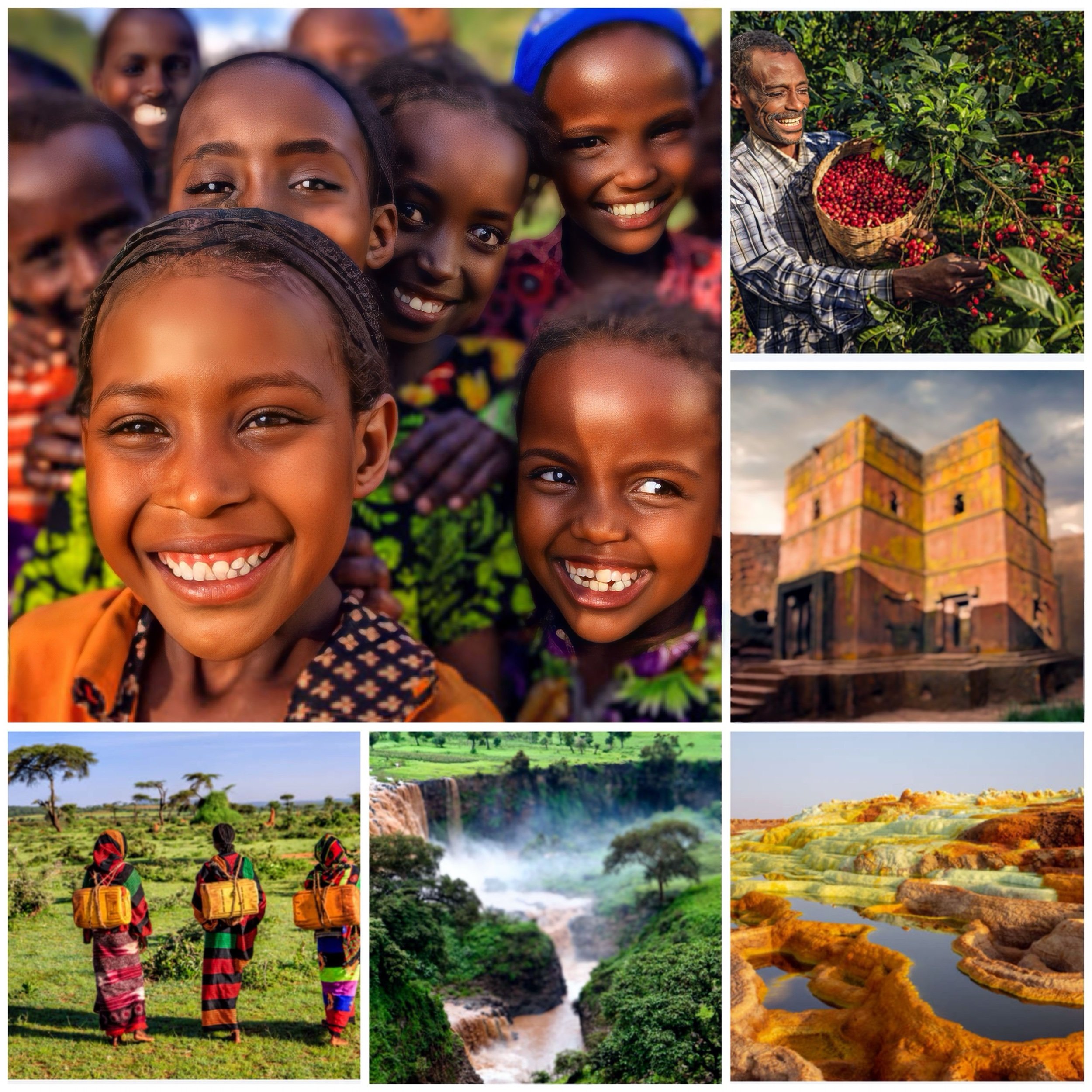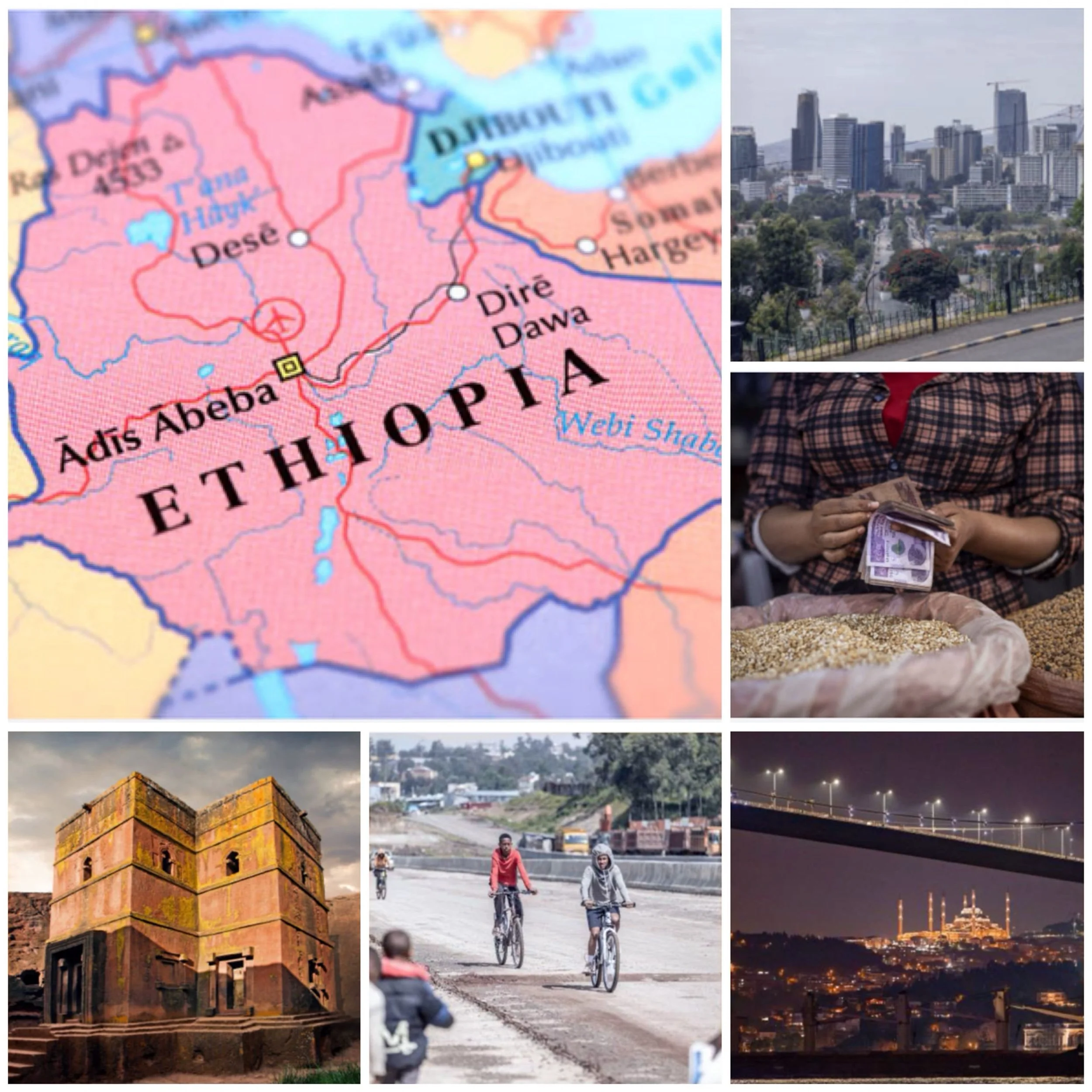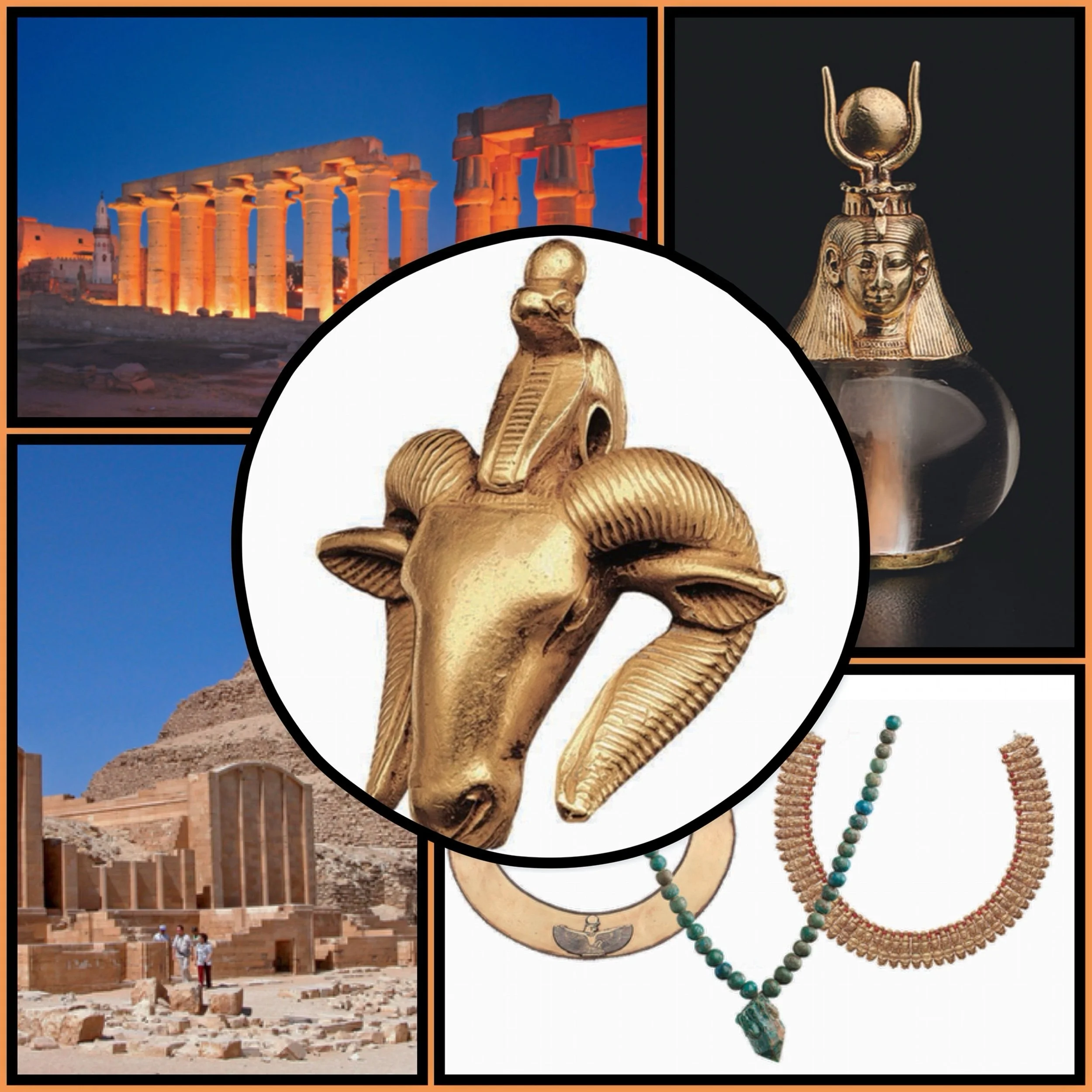Ethiopian beautiful culture
Introduction
Ethiopian culture is rich, diverse, and deeply rooted in ancient traditions. Here are key aspects of Ethiopian culture:
Religion and Spirituality
Christianity is the predominant religion, with about 43% Orthodox Christian and 19% Protestant.
Islam is the second-largest religion, followed by a small percentage practicing traditional beliefs.
Religion plays a central role in daily life, with many festivals and customs tied to religious observances.
Food and Dining
Ethiopian cuisine is unique and communal, centered around injera, a sourdough flatbread made from teff flour.
Meals are typically eaten without utensils, using injera to scoop up stews (wats) and other dishes.
Common ingredients include beef, lamb, vegetables, and lentils, often seasoned with berbere spice mix.
Coffee, originating in Ethiopia, is central to social life and often prepared in a traditional ceremony.
Festivals and Celebrations
Timkat (January 19th): Celebrates the baptism of Jesus, featuring colorful processions and rituals.
Meskel (September 27th): Commemorates the finding of the True Cross, with bonfires and festivities.
Enkutatash (September 11th): Ethiopian New Year, marked by song, dance, and gift-giving.
Arts and Music
Music and dance are integral to Ethiopian culture, especially during festivals.
Traditional instruments include the kebaro (drum), masenko (fiddle), and krar (lyre).
Visual arts often have religious themes, particularly in Orthodox Christian traditions.
Social Structure and Values
Ethiopian society is generally patriarchal, with distinct gender roles.
Respect for elders and community is highly valued.
Concepts like yilugnta (selflessness and consideration) are important in social interactions.
Language and Communication
Over 70 languages are spoken in Ethiopia, with Amharic being the official language.
English is commonly taught in schools and used in higher education.
The ancient Ge’ez script is still used in religious contexts.
Conclusion
Ethiopian culture is characterized by its resilience and continuity, having preserved many ancient practices due to its unique history of resisting colonization. This has resulted in a rich tapestry of traditions that blend the ancient with the modern, making Ethiopia a culturally distinct nation in Africa.






